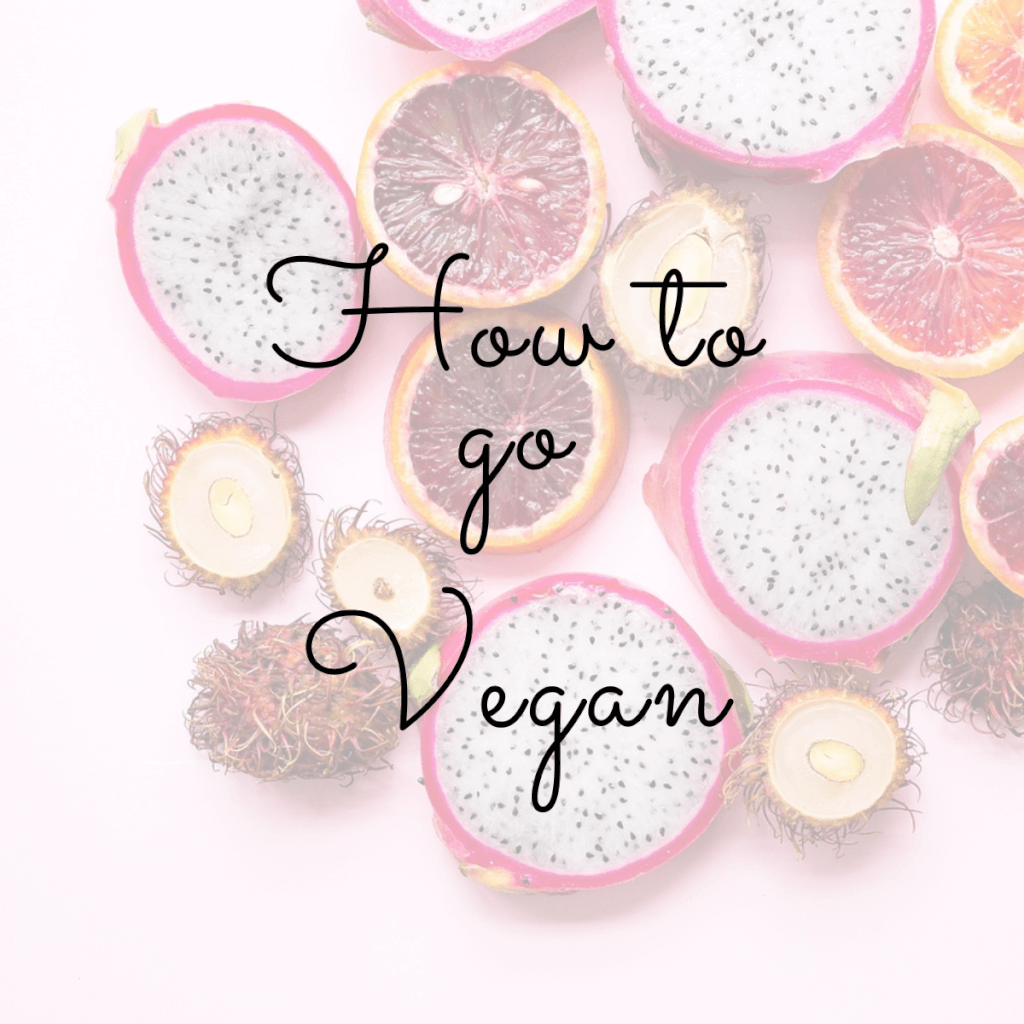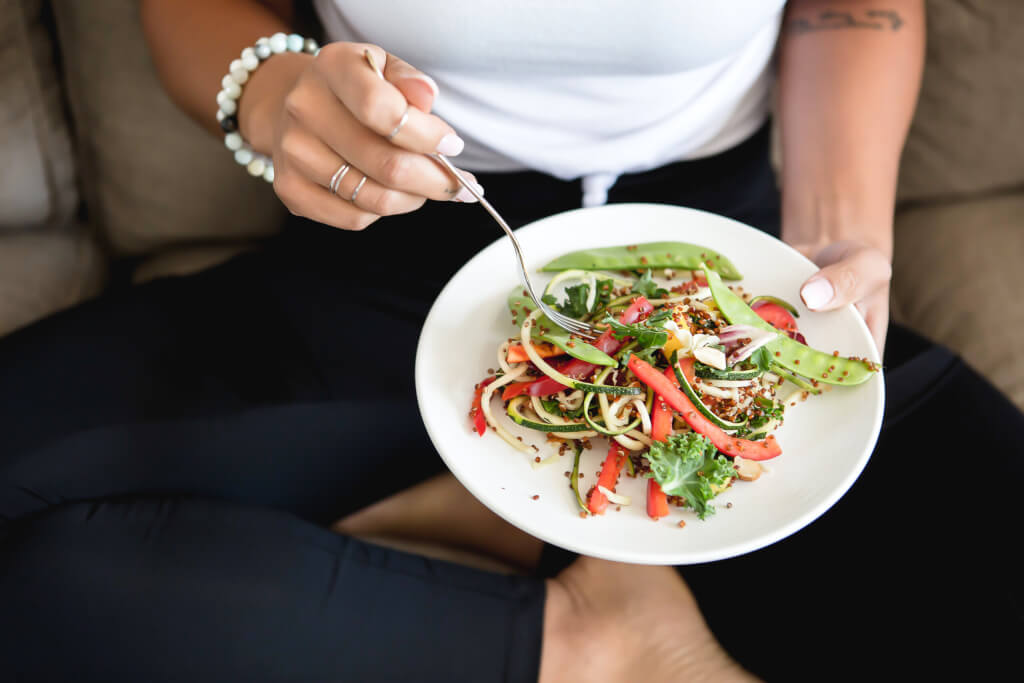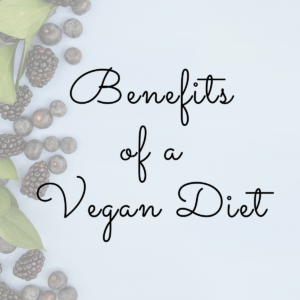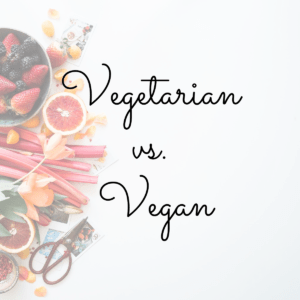
Wondering how to go vegan? This guide will make it easy! So let's get to it!
Jump to:
How do I go vegan?
Going vegan is a great way to improve your health, reduce your environmental impact, and show compassion for animals. Here are some tips to help you make the transition:
- Educate yourself!
Learn about the reasons for going vegan and the benefits it can bring. There are many resources available online, such as books, documentaries, and websites, that can provide information and inspiration. - Plan ahead!
Think about the foods you currently eat and how you can replace them with vegan options. For example, instead of cow's milk, you could try almond, soy, or oat milk. Instead of meat, you could try plant-based proteins such as tofu, tempeh, beans, lentils, and nuts. - Gradually make the switch.
You don't have to go vegan overnight. Start by incorporating more plant-based meals into your diet and gradually reducing your consumption of animal products. - Experiment with new vegan recipes!
Going vegan doesn't mean you have to give up your favorite dishes. There are countless vegan recipes available online, or you can try veganizing your current favorites by using plant-based alternatives. Just grab a copy of my vegan soup cookbook to get started! ;) - Find support.
Going vegan can be a big change, so it's important to have a support system. You can join a local vegan group or connect with other vegans online to share recipes, ideas, and encouragement.
Tell me more tips!
- Start by incorporating more plant-based meals into your diet. If you're new to veganism, it can be helpful to start by adding more vegan meals to your diet rather than trying to cut out all animal products at once. This can make the transition easier and help you get accustomed to plant-based foods.
- Experiment with different plant-based protein sources. There are many plant-based protein sources to choose from, such as tofu, tempeh, beans, lentils, and nuts. Try incorporating a variety of these into your meals to ensure you're getting a balanced diet.
- Learn to read food labels! It's important to become familiar with food labels and ingredient lists so you can identify animal-derived ingredients and make informed choices. Some common animal-derived ingredients to look out for include milk, eggs, and honey.
- Find vegan alternatives to your favorite dishes. Going vegan doesn't mean you have to give up your favorite dishes. There are many vegan alternatives available, such as plant-based milks, cheeses, and meats. You can also try veganizing your current favorites by using plant-based alternatives.
- Stay hydrated! It's important to stay hydrated when following a vegan diet, especially if you're increasing your intake of fiber. Make sure to drink plenty of water and consider incorporating other hydrating drinks such as herbal teas and coconut water.
- Don't be afraid to ask for help. If you're feeling overwhelmed or unsure about how to make the transition to a vegan lifestyle, don't be afraid to ask for help. You can consult a registered dietitian or nutritionist for personalized guidance, or seek out support from friends, family, or online communities. You can also leave a comment below!

What's the hardest part of going vegan?
One of the hardest parts of going vegan can be making the initial transition. It can be challenging to change long-held habits and incorporate new foods into your diet. You may find that you have to put more effort into meal planning and preparation, and you may have to be more mindful of getting all the nutrients you need.
Another difficult aspect of going vegan can be dealing with social situations. You may find that you have to navigate family gatherings, social events, and work functions where non-vegan food is served. It can be helpful to come prepared with vegan options to share, or to communicate your dietary needs to the host in advance.
Another challenge of going vegan can be overcoming cravings for non-vegan foods. If you're used to eating certain animal-based products, it can be tough to give them up. It can be helpful to have a plan in place for how to handle these cravings and to have vegan alternatives on hand to satisfy your appetite.
Finally, going vegan can be difficult because it requires a commitment to making choices that align with your values. It can be hard to stick to your vegan principles in the face of temptation or peer pressure, and you may have to make sacrifices or face criticism from others. However, with determination and support, it is possible to overcome these challenges and maintain a vegan lifestyle.
What's the easiest part of going vegan?
One of the easiest parts of going vegan is that there are so many delicious plant-based options available. With a little creativity and experimentation, you can enjoy a wide variety of meals that are tasty, satisfying, and easy to prepare.
Another easy aspect of going vegan is that it can be cost-effective. Many plant-based foods, such as beans, grains, and vegetables, are relatively inexpensive and can be purchased in bulk to save money. In addition, you may find that you save money on healthcare costs in the long run due to the numerous health benefits associated with a vegan diet.
Another easy aspect of going vegan is that it can be very convenient. Many grocery stores and restaurants now offer a variety of vegan options, making it easier to find something to eat when you're on the go. With a little planning and preparation, it's also easy to have vegan meals and snacks ready to go when you need them.
Finally, going vegan can be easy because it can be a very rewarding experience. By choosing a vegan lifestyle, you can feel good about the impact you're having on the environment, animals, and your own health. This sense of purpose and fulfillment can be a powerful motivator to stick with your vegan journey.

How do I plan a well-balanced vegan diet?
Here are some tips to help you plan a well-balanced vegan diet:
- Mix it up with plant-based proteins.
Tofu, tempeh, beans, lentils, nuts, and seeds are all great sources of vegan protein. Try to include a variety in your meals to make sure you're getting a balanced mix of amino acids. - Load up on vegetables!
Veggies are an essential part of a vegan diet and are packed with nutrients like fiber, vitamins, and minerals. Eat a variety of vegetables, including dark leafy greens, colorful veggies, and root vegetables. - Whole grains are your friend!
Whole grains are an important source of fiber, B vitamins, and minerals. Quinoa, oats, brown rice, and whole wheat are all tasty options to try. - Don't forget fortified foods!
Some vegan diets may be low in certain nutrients like vitamin B12, omega-3 fatty acids, and calcium. Fortified foods and supplements can help ensure you're getting enough of these important nutrients. - Get some expert guidance.
If you have any questions or concerns about your vegan diet, consider reaching out to a registered dietitian or nutritionist for personalized advice. They can help you make sure you're getting all the nutrients you need.
Are you ready?
Ready to join the plant-based revolution? Going vegan is a super cool way to improve your health, reduce your environmental impact, and show some love for animals. Sure, there may be some challenges along the way, but with a little creativity and experimentation, you'll be chowing down on delicious vegan meals in no time. Don't be afraid to get a little help from your friends, either - whether that's from a registered dietitian, a vegan BFF, or the internet. Every vegan meal you eat is a win for the planet, the animals, and your bod. Let's do this!















giulia lombardo says
thanks for sharing